Receiving a glaucoma diagnosis can feel overwhelming. Known as the “silent thief of sight,” glaucoma often progresses without noticeable symptoms until significant vision loss has already occurred.
Being well-informed and asking the right questions during your appointments can help you feel more confident about your treatment plan and take an active role in preserving your vision. Keep reading to learn more about six questions to ask your eye doctor about glaucoma.
1. What Type of Glaucoma Do I Have?
Glaucoma isn’t a single condition but rather a group of eye diseases that damage the optic nerve. The most important first step is understanding exactly what type you have.
Open-angle glaucoma is the most common form, developing slowly when pressure builds and blocks the trabecular meshwork, the tissue through which the eye’s aqueous humor continuously flows to maintain stable pressure. Angle-closure glaucoma is less common but can be more sudden, occurring when the drainage angle becomes partially or completely blocked.
Understanding your specific type helps you know what to expect and what treatment approaches will be most effective.
2. How Advanced Is My Glaucoma?
Your eye doctor will assess the stage of your glaucoma through various tests, including visual field testing and optical coherence tomography (OCT). Knowing whether you have mild, moderate, or advanced glaucoma helps set realistic expectations for treatment outcomes and determines the scope of your treatment plan.
3. What Are My Glaucoma Treatment Options?
Colorado Eye Consultants offers a comprehensive range of glaucoma treatments, from traditional eye drops to the latest minimally invasive procedures. Initial therapy typically consists of eye drops or laser treatment; however, advancements in technology have significantly expanded these options.
These may include sustained-release glaucoma medications, minimally invasive glaucoma surgery (MIGS), or traditional surgical procedures like trabeculectomy.
4. What Are the Benefits and Potential Risks of Each Treatment Option?
Every treatment has advantages and potential side effects. Eye drops are non-invasive but require daily compliance and may cause side effects.
On the other hand, MIGS procedures can reduce dependence on medications but involve surgical risks. Your eye doctor can help you weigh these factors based on your specific situation.
5. How Often Will I Need Follow-Up Appointments, and What Warning Signs Should I Watch for Between Appointments?
Glaucoma is a chronic condition that requires ongoing management and monitoring. Regular monitoring is essential for effectively managing glaucoma.
Your eye doctor will likely schedule visual field tests to check for changes in peripheral vision, OCT scans to examine your optic nerve fibers, and regular eye pressure checks. At these appointments, you can ask about what symptoms to look out for as you monitor at home.
While open-angle glaucoma typically progresses slowly without symptoms, angle-closure glaucoma can present with more rapid, severe symptoms. Knowing what changes warrant immediate attention can help prevent vision loss.
6. How Can I Best Manage My Eye Drop Schedule?
If your treatment includes eye drops, proper administration and timing are crucial for effectiveness. Your eye doctor can provide techniques for appropriate use and suggest strategies for remembering doses, such as linking them to daily routines.
Taking Control of Your Glaucoma Care
The key to successful glaucoma management is building a strong partnership with your eye care team. At Colorado Eye Consultants, our ophthalmologists encourage patients to ask questions, voice concerns, and take an active role in their treatment decisions.
Remember that glaucoma, while serious, is often manageable when detected early and treated appropriately. While there’s no cure for glaucoma, proper treatment can significantly slow the progression of vision loss and help preserve your sight for years to come.
Don’t hesitate to write down your questions before appointments, and bring a family member or friend if it helps you remember important information. Your eye doctor is your partner in preserving your vision, and open communication is essential for the best possible outcomes.
If you have concerns about glaucoma or would like to schedule a comprehensive eye exam, contact Colorado Eye Consultants in Littleton, CO, today!

